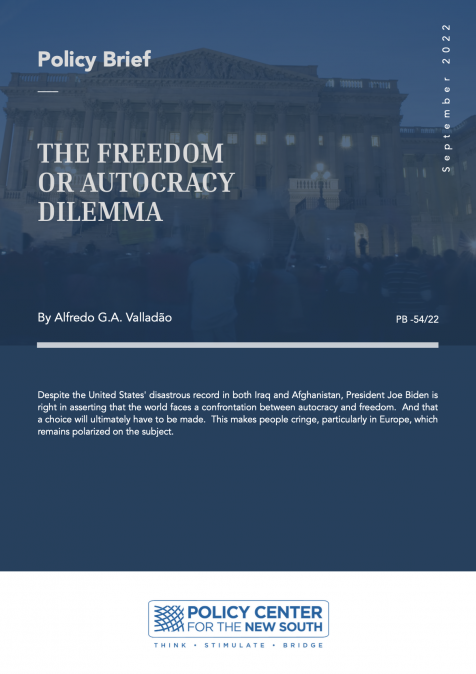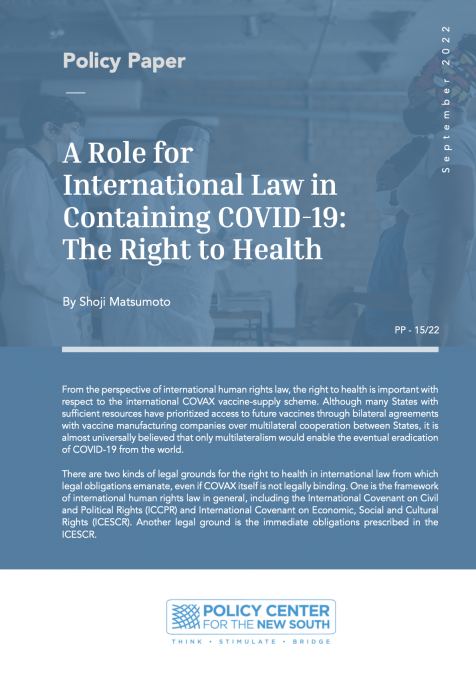Publications /
Opinion
The United Nations was built on a promise: to create a world in which justice, equality, and human dignity prevail. Arising from the ashes of the Second World War, the UN’s charter is filled with lofty ideals—social progress, human rights, and “better standards of life in larger freedom.” Decades later, the rhetoric remains intact, but the reality tells a different story.
The UN has played a critical role in shaping global conversations around poverty, human rights, and inequality, but the question remains: is it truly delivering on social justice, or has it morphed into a bureaucratic machine that manages rather than challenges global inequities?
An Institution Built to Persuade, Not Enforce
The UN is, in many ways, the world’s conscience. It is a single platform that brings governments, civil society, and international institutions together, crafting global norms on everything from labor protections to human rights. Over the years, it has been the architect of sweeping declarations—the Universal Declaration of Human Rights, the Millennium Development Goals (MDGs), and most recently, the Sustainable Development Goals (SDGs).
But declarations do not create justice. The UN lacks enforcement power. It can investigate, document, and denounce abuses, but it cannot force compliance. Governments sign human-rights treaties while continuing to suppress dissent. They pledge to tackle inequality while entrenching policies that widen the gap between rich and poor. Ultimately, the UN’s influence depends on voluntary commitments from its member states—commitments that, too often, go unfulfilled.
The SDGs: Grand Ambitions, Limited Power
The Sustainable Development Goals, adopted in 2015, were meant to be a blueprint for a fairer world. Seventeen targets—from ending hunger to reducing inequality—mapped out an ambitious global agenda.
Yet, as the 2030 deadline for achievement of the SDGs approaches, progress is alarmingly slow. The COVID-19 pandemic, economic shocks, and geopolitical instability have derailed many goals. But the deeper issue is structural. The UN lacks the financial and political muscle to drive real change. It does not control development funding; it relies on donors, whose priorities shift with political cycles. The financing gap for achieving the SDGs stands at a staggering $4 trillion a year, with little sign of being filled.
More fundamentally, the SDGs are based on a flawed assumption: that governments and the private sector will prioritize social justice if given the right framework. But, in a world in which wealth is increasingly concentrated and corporate power is unchecked, voluntary pledges are not enough.
Selective Justice and Political Blind Spots
Nowhere is the UN’s credibility more tested than in the realm of human rights. The UN Human Rights Council investigates violations, issues reports, and offers technical assistance to states. The UN Refugee Agency (UNHCR) provides protection for millions of displaced people. The International Labour Organization (ILO) sets standards for workers’ rights.
Yet, justice at the UN is often selective. The Human Rights Council includes countries with appalling human rights records. Major powers escape serious scrutiny, while smaller or geopolitically weaker nations bear the brunt of condemnation. The UN’s handling of conflicts—from Gaza to Ukraine to Myanmar—has been riddled with double standards, damaging its credibility as a neutral arbiter of justice.
Even in areas in which the UN has made strides—gender equality, access to education, health—progress is often uneven. It is easier to champion causes that do not challenge entrenched power structures. But when justice requires corporate tax avoidance to be confronted, monopolies to be broken up, or reparations for historical injustices to be demanded, the UN is conspicuously silent.
A Global System Rigged Against Change
The UN’s limitations are not just about political will—they are built into the structure of global governance itself. Power at the UN is distributed unevenly, mirroring the economic and political hierarchies of the world order.
The Security Council, dominated by five permanent members with veto power, remains a relic of the post-Second World War balance of power. Reforming it is a near-impossible task, blocked by those that benefit most from the status quo.
Economic justice is another glaring gap. While the General Assembly passes resolutions calling for debt relief, fairer trade policies, and more equitable development finance, real power lies elsewhere. The International Monetary Fund, World Bank, and World Trade Organization—institutions that shape the economic realities for billions of people—operate under governance structures in which wealthier nations hold disproportionate sway.
The result is a system that administers global inequality rather than dismantling it.
Can the UN Still Be a Force for Social Justice?
For all its shortcomings, the UN remains the only institution with a truly global social mandate. It has the capacity to set norms, mobilize resources, and amplify the voices of marginalized communities. The alternative—no UN at all—would likely mean an even more fragmented and unequal world.
But if it is to be more than a caretaker of the status quo, the UN must push for deeper structural reforms:
- Challenge global financial injustice: Advocate not just for aid, but for systemic changes—debt restructuring, fair taxation, and an end to illicit capital flows.
- Hold all states accountable: End the practice of selective human-rights enforcement. Justice cannot be contingent on political alliances.
- Reform global governance: Shift power in decision-making bodies to reflect the realities of a multipolar world, rather than maintaining a system built in 1945.
- Move beyond voluntary commitments: Develop enforcement mechanisms that ensure social justice goals are more than aspirations.
The Limits of Idealism in a Power-Driven World
Social justice, from a realist perspective, is not achieved through moral appeals or institutional resolutions but through power dynamics. Without the ability to compel compliance, the UN remains an instrument through which states and corporations negotiate their interests, rather than a true arbiter of global justice.
The UN’s greatest challenge is not its lack of ambition but the constraints imposed by the very system it operates within. It can convene summits, issue reports, and raise awareness, but unless it can challenge power—both political and economic—it risks remaining a well-meaning custodian of the status quo.
The world does not need a UN that merely manages inequality. It needs one that is empowered to reshape it. But in the current international order, such a transformation remains a distant prospect.











